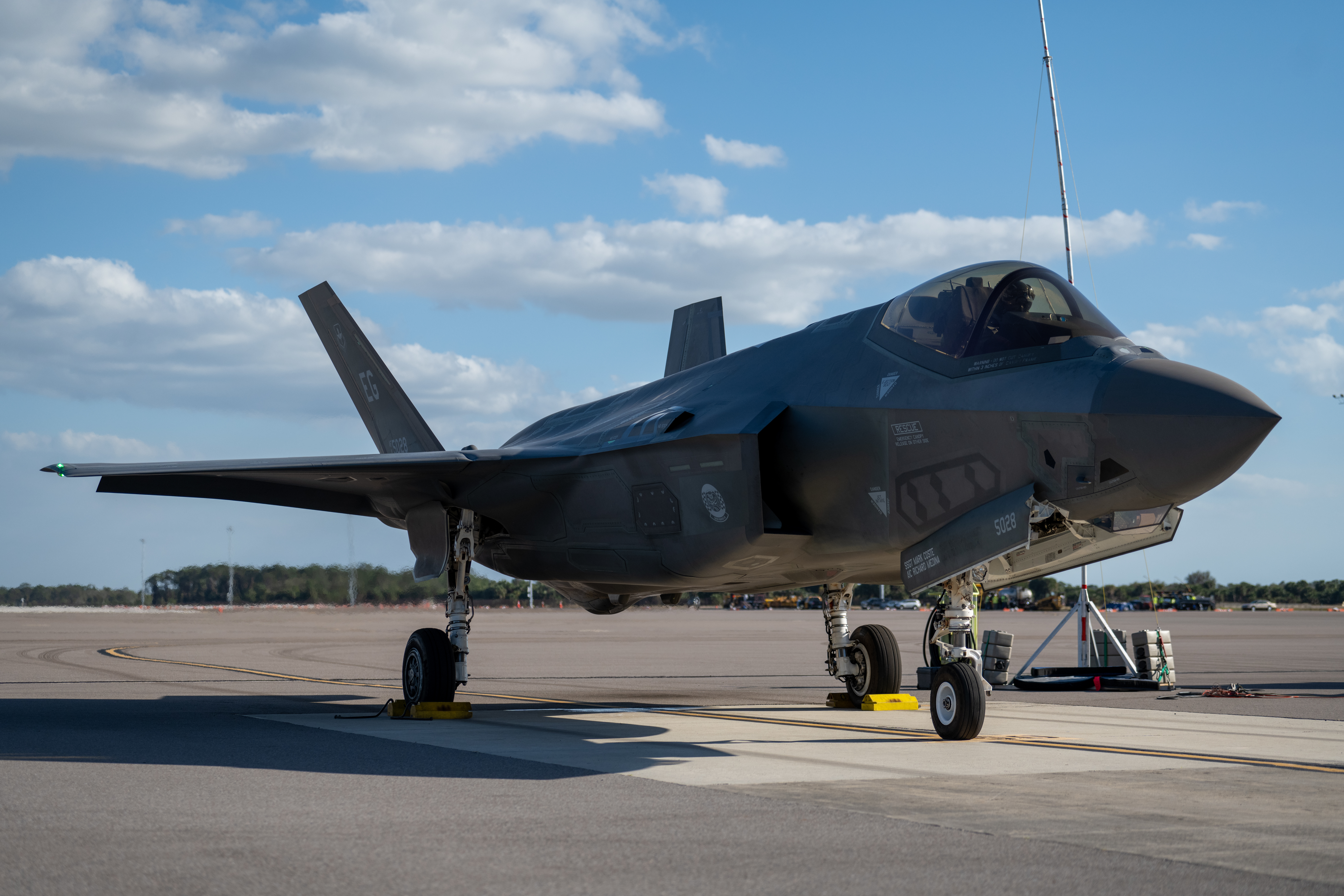Lockheed Martin restarted flying operations at its Fort Worth, Texas, facilities March 6, paving the way for deliveries of F-35s to resume after a nearly three-month hiatus. It’s not yet clear when the first new F-35 of 2023 will be delivered.
“We resumed F-35 production flight operations today following an F135 engine mitigation action,” the company said in a press statement. The move follows action by Pratt & Whitney to resume deliveries of F135 engines with the issuance of a technical order to address issues of harmonic resonance in the powerplants.
Lockheed has completed but not delivered 26 F-35s since the hold on flying operations was put in place after a mid-December crash of an F-35B at Fort Worth. Acceptance flights by Lockheed and Defense Contract Management Agency test pilots are needed to ensure the aircraft work properly and that any deficiencies can be documented.
“Safety remains our top priority; we will deliver the aircraft as quickly as possible after undertaking the multiple checks and test flights needed,” a Lockheed spokesperson told Air & Space Forces Magazine.
Flying was halted Dec. 14 as precautionary measure after the crash; the hold on flying meant acceptance tests could not proceed. Pratt stopped delivering F135 engines at the end of December.
Although Pratt and the F-35 Joint Program Office had said the harmonic resonance problem only affected a small number of aircraft, the entire worldwide fleet of F-35s will get a retrofit to fix the issue, which Pratt said only showed up after more than 600,000 hours of F135 engine operations. Officials from the engine maker told reporters early last week they had identified a fix and resumed deliveries of the engine March 2.
A time compliance technical directive (TCTD) was then issued by the JPO; aircraft that were not affected by the harmonic resonance issue will not have any flight restrictions placed on them while they wait for the fix, while the small number of aircraft that were grounded will be cleared to fly once they get the retrofit, which takes between four and eight hours, a JPO spokesperson said.
A Lockheed Martin spokesperson said all 26 undelivered F-35s will either get the retrofit before flying or receive an already modified engine. There are no changes required for aircraft production to incorporate the retrofit, the spokesperson added.

